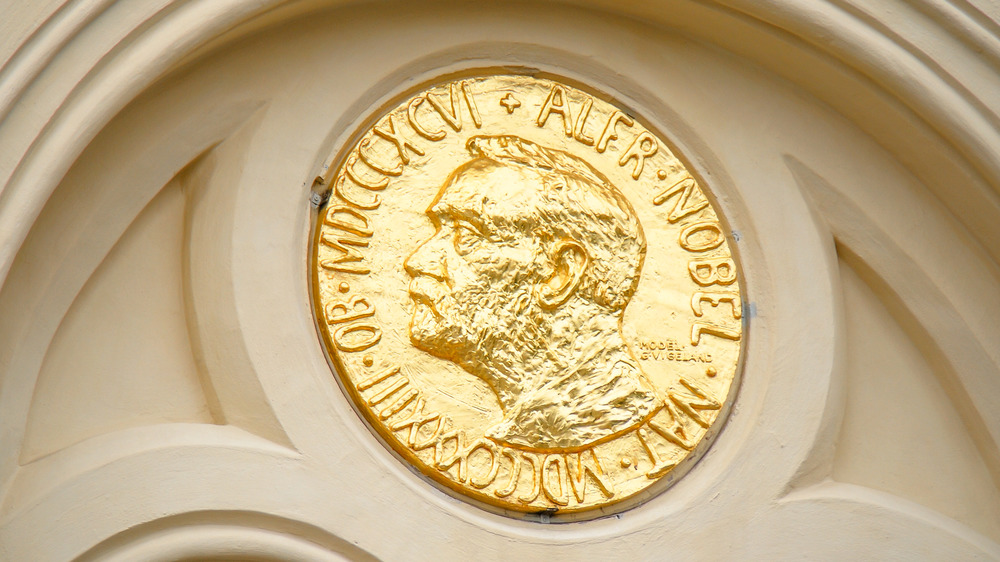Survey Reveals The Historical Figure People Would Most Want To Swap Lives With
Humans spend half of their time daydreaming, according to Psychologies. While daydreams often feature everyday experiences — interactions with those you know and visualizations of future events — some explore uncharted territory: superpowers, moving to paradise, and exchanging lives with someone else.
Grunge News conducted a survey of 518 people around the country and asked which historical figure they'd swap lives with. The results might just give you some new people to showcase in those daydreams.
The queen of Egypt from 51-30 BCE provides inspirational allure, with 24.13 percent wanting to swap their modern-day existence with Cleopatra. The legendary beauty bedded the Roman emperor Julius Caesar and married Mark Antony. She ruled Egypt alongside her two brothers, Ptolemy XIII and Ptolemy XIV, and her son, Ptolemy XV Caesar. "Cleopatra actively influenced Roman politics at a crucial period, and she came to represent, as did no other woman of antiquity, the prototype of the romantic femme fatale," said Britannica.
While Cleopatra seems exotic, intelligent and was the last pharaoh of Egypt, she did war with Rome, a defeat that led to her husband's and her own suicide. As History Extra tells it, "Unable to contemplate life as a prisoner of Rome, and without the protection of her Roman lover, Cleopatra takes her own life," allegedly by allowing a poisonous snake to bite her.
Maybe, it's better to daydream of someone with a happier ending. For 19.11 percent of those surveyed, they would like to live as Alexander the Great, who is linked to Cleopatra.
An enviable military career
Cleopatra's father, Ptolemy XII, came from Macedonian-Greek royalty and a relative, Ptolemy I Soter, served as one of Alexander's generals, according to History.com.
Alexander the Great hit the right marks as a commander — he ruled one of the biggest ancient empires. After his father, Philip II, was assassinated in 336 B.C., 20-year-old Alexander wasted no time shoring up his power. As History reported, he swept through the Persian territories without any defeats before embarking on eight years of battles that resulted in a two-million-square mile territory that sprawled through three continents.
However, according to the website, "He was undefeated in battle and is widely considered one of history's most successful military commanders — but died in his prime at Babylon in June 323 BC, just before his 33rd birthday." Historians remain uncertain about what killed him, with some suggesting malaria, typhoid, or poison. A new theory, written about in 2019 on History, suggests Alexander might have had Guillain-Barré Syndrome, a neurological disorder.
The third most-popular historical figure also died early: the Nobel Prize-winning physicist, Marie Curie, who received 14.29 percent of the vote. The first woman to claim that award for physics, she won another Nobel prize for chemistry — and became the first to win the honor twice. Her other accomplishments included discovering radioactivity and the elements polonium and radium. She died in 1934 from aplastic anemia, a disorder that stops the body from producing new blood cells, which was "likely caused by her exposure to radiation," said Biography.
Other historical figures worth a daydream
England's Queen Elizabeth I, with 11.39 percent of the vote, lived until age 69. Under her leadership, England excelled in politics, commerce and the arts, according to Britannica. "Elizabeth's blend of shrewdness, courage, and majestic self-display ... helped unify the nation against foreign enemies," said the encyclopedia. "The adulation bestowed upon her both in her lifetime and in the ensuing centuries was not altogether a spontaneous effusion. It was the result of a carefully crafted, brilliantly executed campaign."
Sounds like someone worthy of daydreaming about ... as are the last survey placeholders: Lawrence of Arabia, with 9.07 percent, and Albert Schweitzer, who collected 7.53 percent. Thomas Edward Lawrence is described by NPR as a "dashing, romanticized British officer credited with leading the Arab revolt against the Turks during World War I," immortalized in the 1962 film.
Albert Schweitzer, a philosopher, philanthropist, author, musician and doctor, spent his life helping others. He won the Nobel Peace Prize in 1952 for his work.
You can feel good about embracing any daydreams that have you reenacting the life of Cleopatra, Alexander the Great, or someone else. Such mental activities are in fact good for you. "We think of daydreams as scatterbrained and unfocused, but one of the functions of daydreaming is to keep your life's agenda in front of you," said Eric Klinger, professor of psychology at the University of Minnesota, quoted at Psychologies. "It reminds you of what's coming up, it rehearses new situations, plans the future and scans past experiences so you can learn from them."


